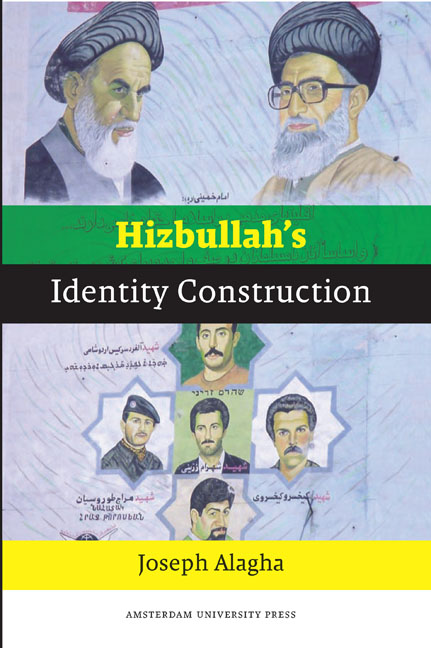Book contents
- Frontmatter
- Dedication
- Contents
- A Note on Transliteration
- Acknowledgements
- List of Abbreviations
- Summary
- Introduction and Analytical Framework
- 1 Tolerance and Discrimination: Ahl Al-Dhimma in the Islamic Order
- 2 Interpretation and Authority: Wilayat Al-Faqih
- 3 Political Violence: Terrorism and 9/11
- 4 Political Violence: Suicide Operations
- 5 From Cooptation to Contestation to Political Power
- 6 The Doha 2008 Accord and its Aftermath
- 7 The Eighth Conclave: A New Manifesto (November 2009)
- 8 Epilogue: Future Prospects – Disarmament and the Peace Process
- Afterword
- Glossary
- Additional Reading
- Notes
- Selected Bibliography
- Index
- Praise for Hizbullah's Identity Construction (1978-2010)
6 - The Doha 2008 Accord and its Aftermath
Published online by Cambridge University Press: 19 January 2021
- Frontmatter
- Dedication
- Contents
- A Note on Transliteration
- Acknowledgements
- List of Abbreviations
- Summary
- Introduction and Analytical Framework
- 1 Tolerance and Discrimination: Ahl Al-Dhimma in the Islamic Order
- 2 Interpretation and Authority: Wilayat Al-Faqih
- 3 Political Violence: Terrorism and 9/11
- 4 Political Violence: Suicide Operations
- 5 From Cooptation to Contestation to Political Power
- 6 The Doha 2008 Accord and its Aftermath
- 7 The Eighth Conclave: A New Manifesto (November 2009)
- 8 Epilogue: Future Prospects – Disarmament and the Peace Process
- Afterword
- Glossary
- Additional Reading
- Notes
- Selected Bibliography
- Index
- Praise for Hizbullah's Identity Construction (1978-2010)
Summary
COUPS D’ÉTAT: FROM 8 MARCH 2005 TO 8 MAY 2008
Hizbullah's bid for power laid the cornerstone for a new phase in which it seeks to dominate the public sphere and national political arena. Under the slogan of partnership and the reformulation of the political system (almusharaka wa i‘adat intaj al-sulta) and after eighteen months of a wavering political stalemate, Hizbullah affected change by force on the ground gaining its long awaited veto power in the Lebanese cabinet. In a politically charged atmosphere, the cabinet decided to confront Hizbullah for the first time since Ta‘if. After a long meeting on 6 May that went on till the early hours of the morning, the council of ministers deemed Hizbullah's telecommunications network an “onslaught against the state's sovereignty and its financial resources” (i‘tida’ ‘ala siyadat al-dawla wa al-mal al-‘amm) or as illegitimate and a threat to the state's financial security. The cabinet affirmed that it was going to bring to justice all those who participated or were involved in deploying this network, which was tantamount to an arrest warrant against Nasrallah. Also, the cabinet dismissed the pro-Hizbullah-Amal Beirut Airport head of security, Lebanese army general Wafiq Shuqayr, who had been serving in this post since 2000, accusing him of deploying cameras across Beirut International Airport's lane number 17 in order to monitor the travellers. Hizbullah exploited a general strike called on by the Labor unions on 7 May and the aforementioned two governmental decisions as pretexts to storm and occupy, by military force in the night of 8-9 May, West Beirut, where most government ministries are located. By 12 May Hizbullah was able to control the Shuf region, a Druz den. The party managed to strike a ‘silent consensus’ deal with the Lebanese army not to interfere in the crisis. Knowing that at least 60 percent of the army are Shi‘ites and that it is made up of a further seventeen confessions that form the Lebanese myriad, involving the army in the clashes would have led to its disintegration, as was the case during the civil war. The Hizbullah-led opposition waged a campaign of civil disobedience blocking vital routes and key arteries to the Lebanese economy such as the national airport and the Beirut port.
- Type
- Chapter
- Information
- Hizbullah's Identity Construction , pp. 141 - 154Publisher: Amsterdam University PressPrint publication year: 2012



